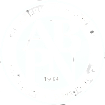Parkinson’s disease is a disorder of the brain that leads to shaking (tremors) and difficulty with walking, movement, and coordination.
Causes, incidence, and risk factors
Parkinson’s disease most often develops after age 50. It is one of the most common nervous system disorders of the elderly. Sometimes Parkinson’s disease occurs in younger adults. It affects both men and women.
In some cases, Parkinson’s disease runs in families. When a young person is affected, it is usually because of a form of the disease that runs in families.
Nerve cells use a brain chemical called dopamine to help control muscle movement. Parkinson’s disease occurs when the nerve cells in the brain that make dopamine are slowly destroyed. Without dopamine, the nerve cells in that part of the brain cannot properly send messages. This leads to the loss of muscle function. The damage gets worse with time. Exactly why these brain cells waste away is unknown.
Parkinson’s is rare in children. It may occur because the nerves are not as sensitive to dopamine.
The term “parkinsonism” refers to any condition that involves the types of movement changes seen in Parkinson’s disease. Parkinsonism may be caused by other disorders (called secondary parkinsonism) or certain medications.
Symptoms
Symptoms may be mild at first. For instance, you may have a mild tremor or a slight feeling that one leg or foot is stiff and dragging. Symptoms may affect one or both sides of the body.
Symptoms include:- Slow blinking
- Constipation
- Difficulty swallowing
- Drooling
- Problems with balance and walking
- No expression in the face (like you are wearing a mask)
- Muscle aches and pains
- Movement problems, which include:
- Difficulty starting movement, such as starting to walk or getting out of a chair
- Difficulty continuing to move
- Slowed movements
- Loss of small or fine hand movements; writing may become small and difficult to read; eating becomes difficults
- Rigid or stiff muscles, often beginning in the legs
- Shaking, called tremors
- Usually occurs in the limbs at rest, or when the arm or leg is held out
- Goes away when you move
- Eventually may be seen in the head, lips, tongue, and feet
- May be worse when tired, excited, or stressed
- Finger-thumb rubbing (pill-rolling tremor) may be present
- Slowed, quieter speech and monotone voice
- Stooped position
- Low blood pressure when getting up, sweating, drooling, lack of body temperature control. These problems are due to something called autonomic dysfunction.
- Anxiety, stress, and tension
- Confusion
- Dementia
- Depression
- Fainting
- Hallucinations
- Memory loss


 845-454-6491 (FAX)
845-454-6491 (FAX)





